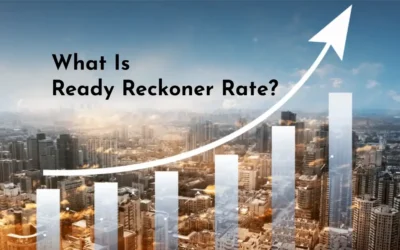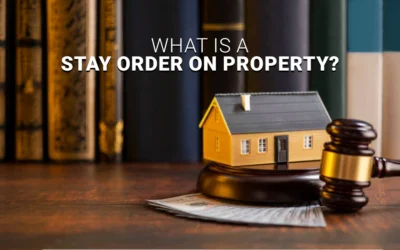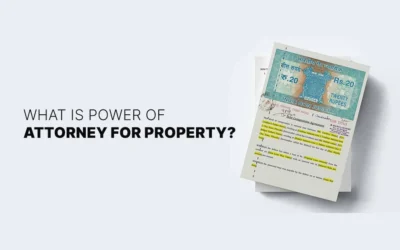To streamline civic tax procedures, the Pimpri-Chinchwad Municipal Corporation has implemented progressive measures over the years. The PCMC property tax system’s digitization has been one such reform. Citizens will be able to track past payments, pay taxes online, and possibly receive early compliance incentives. Both residential and commercial property owners will find the internet platform easy to use, safe, and convenient.
In addition to lowering administrative costs, this move toward digital governance gives individuals greater transparency and authority over their responsibilities on their properties. Knowing how the system operates is even more crucial now that late payments are subject to fines and on-time payments are eligible for rebates.
This thorough blog seeks to explain the property tax system, walk you through the online payment steps, and highlight critical timelines to ensure hassle-free compliance.
Why Should You Pay PCMC Property Tax Online?
Choosing to pay online as opposed to using more conventional offline ways has several advantages. Among the main causes are:
Convenience: You don’t need to go to PCMC offices to make payments; you can do so whenever and from anywhere.
Instant Confirmation: As soon as your money has been processed, you will instantly receive an electronic receipt.
Decreased Wait Times and Queues: Online payments save time and effort by preventing lengthy wait times.
Secure Payment Methods: You may feel at ease knowing that payments made through the official PCMC gateway are safe.
Steps to Pay PCMC Property Tax Online
Step 1: Access the Official PCMC Property Tax Portal
The first step in paying your property tax online is to visit the official PCMC Property Tax Portal. The website for this is:
Once on the portal, you will need to log in or create an account if you’re a new user.
Step 2: Log in or Register on the Portal
Existing Users: Entering your Property ID, email address, and mobile number will allow you to log in if you have already registered. Your property records ought to be connected to these particulars.
New Users: You must register for a new account if you haven’t already. Enter your property’s address, owner’s name, and contact details after selecting the New User Registration option.
You will have direct access to your property tax information after registering.
Step 3: Verify Property Tax Details
You can check your property tax information, including the tax amount, due date, and any outstanding balances, after logging in. Making sure that every element is correct is crucial. You can update them through the portal or get in touch with PCMC support if any inconsistencies are discovered.
Also Read: IFMS Charges in Real Estate: What They Are & Why You’re Paying Them
How is PCMC Property Tax Calculated?
The Unit Area System (UAS), which is used to determine PCMC’s property tax, considers several important factors:
Property Type: The tax rates for residential, commercial, and mixed-use properties vary.
Built-Up Area: Taxes will be higher on larger properties with more built-up area.
Property Age: Newer homes are typically worth more, which translates into higher taxes.
Use Type: Compared to residential properties, commercial properties are subject to higher taxes.
Location: The tax rate varies according to the Pimpri-Chinchwad zone in which the property is located.
Based on the information you enter, the online portal computes the tax automatically. You can check to see if the calculated sum matches your expectations.
Available Payment Methods
To make paying your property taxes as easy as possible, PCMC offers several payment options:
Net Banking: This function, which is accessible for a number of banks, including SBI, HDFC, ICICI, and others, allows you to make payments.
Debit/Credit Card: Visa, MasterCard, and other accepted credit/debit cards can be used to make payments.
UPI (Unified Payments Interface): Link your UPI ID to pay using apps like PhonePe, Google Pay, and others.
e-Wallets: Depending on the possibilities accessible at the moment, certain e-wallets might also be accepted as payment.
Just go to the checkout page and pick the payment option that best fits your needs.
Step 4: Make the Payment
You must provide the necessary payment information and finish the transaction after choosing your preferred payment method. Make sure all of the information entered is accurate, particularly the payment amount and property number.
You will immediately see a confirmation message on the portal when the transaction has been properly completed.
Step 5: Download Your Payment Receipt
An electronic receipt will be generated by the PCMC portal following the payment. You can save and store this as proof of payment for your records. Keeping this receipt is essential in case there are any problems or inconsistencies with your payment later.
Updating Property Tax Information
Maintaining current property records with the PCMC is crucial. You can edit your property’s details directly through the portal if anything changes, including the owner’s name or how the property is used. So, you might need to provide more papers to update your information, like:
- Sale deed (if the property has been purchased or sold)
- Evidence of identity or residence (if your data has changed)
- Photos of the property (in some situations)
You can proceed with the payment once your amended information has been reflected in the tax calculation.
Offline Payment Methods
PCMC accepts offline payment methods in addition to the most convenient online portal:
PCMC Ward Offices: You can pay at the ward office that is closest to you.
Banks: On behalf of PCMC, a few banks are permitted to take property tax payments.
Citizen Facilitation Centers: These locations are accessible for processing payments.
Keep in mind that processing offline payments could take longer, and receipts might not be instantaneous.
Also Read: FSI Full Form, Meaning & FAR Difference in Construction
Important Dates to Remember for PCMC Property Tax
Pimpri-Chinchwad property owners need to be aware of important due dates to guarantee on-time payment and prevent fines. Property tax payments are normally made in two installments throughout the April 1–March 31 fiscal year:
- First Half-Year Payment: Due by May 31.
- Second Half-Year Payment: Due by December 31.
PCMC provides alluring incentives to encourage early compliance. Those who pay their complete annual tax by a certain deadline, usually around June 30, are typically eligible for a refund of up to 10% on the general tax component. Usually, this rebate is divided into two sections: a regular rebate for on-time payment and an extra rebate for paying online. Every fiscal year, these dates could change, so verifying the official portal is necessary.
What Happens if You Don’t Pay Your Property Tax on Time?
In addition to being a civic obligation, paying property taxes on time is also wise financial management. The following repercussions usually occur if the tax is not paid by the deadline:
Monthly Penalty: The amount of unpaid taxes is subject to a 2% monthly penalty. For every month of delay, this penalty keeps accruing.
Interest Accrual: Over time, interest may be assessed in addition to penalties, raising the total amount owed.
Legal Action and Property Attachment: PCMC has the right to start legal action, which may involve the attachment or auction of the relevant property, in situations where there has been a prolonged non-payment. Before any coercive measures are implemented, defaulters may also get reminders and notices.
It’s advisable for property owners to pay their dues within the given timeframe to avoid these compounding charges and legal risks.
PCMC’s Initiatives for Property Tax Collection
The Pimpri-Chinchwad Municipal Corporation has implemented several contemporary measures to improve tax collection’s effectiveness, transparency, and convenience:
Digital Payment System: PCMC’s official website provides a way to pay property taxes online. Through this system, citizens may easily make payments and examine their payment history, outstanding dues, and property details.
Mobile Accessibility: Citizens can now handle their property tax responsibilities from smartphones or tablets thanks to some services that have been made available through mobile platforms.
Tax Awareness Drives: To promote prompt tax compliance and educate the public about rebate programs, the company frequently runs public awareness campaigns through local media, posters, and community engagement.
E-Receipts and Automation: An instant digital receipt is generated for each online transaction. In order to improve service delivery, reduce errors, and remove delays, backend systems are becoming more and more automated.
Dedicated Hotline and Support: To help individuals with questions or concerns pertaining to property taxes, PCMC offers a hotline number and specific support channels.
These programs fall under PCMC’s overarching goal of creating a responsive and approachable municipal government.
Winding Up
It’s essential to pay your property taxes on time to prevent fines and interest. Property owners can conveniently compute, pay, and get property tax receipts from the comfort of their own homes with PCMC’s online site. The site provides a range of payment methods so you may select the one that works best for you. It also offers a simple method of updating property information, exemptions, and refund opportunities.
Visit the official PCMC property tax portal at PCMC Property Tax Portal to learn more or to begin the payment process.




